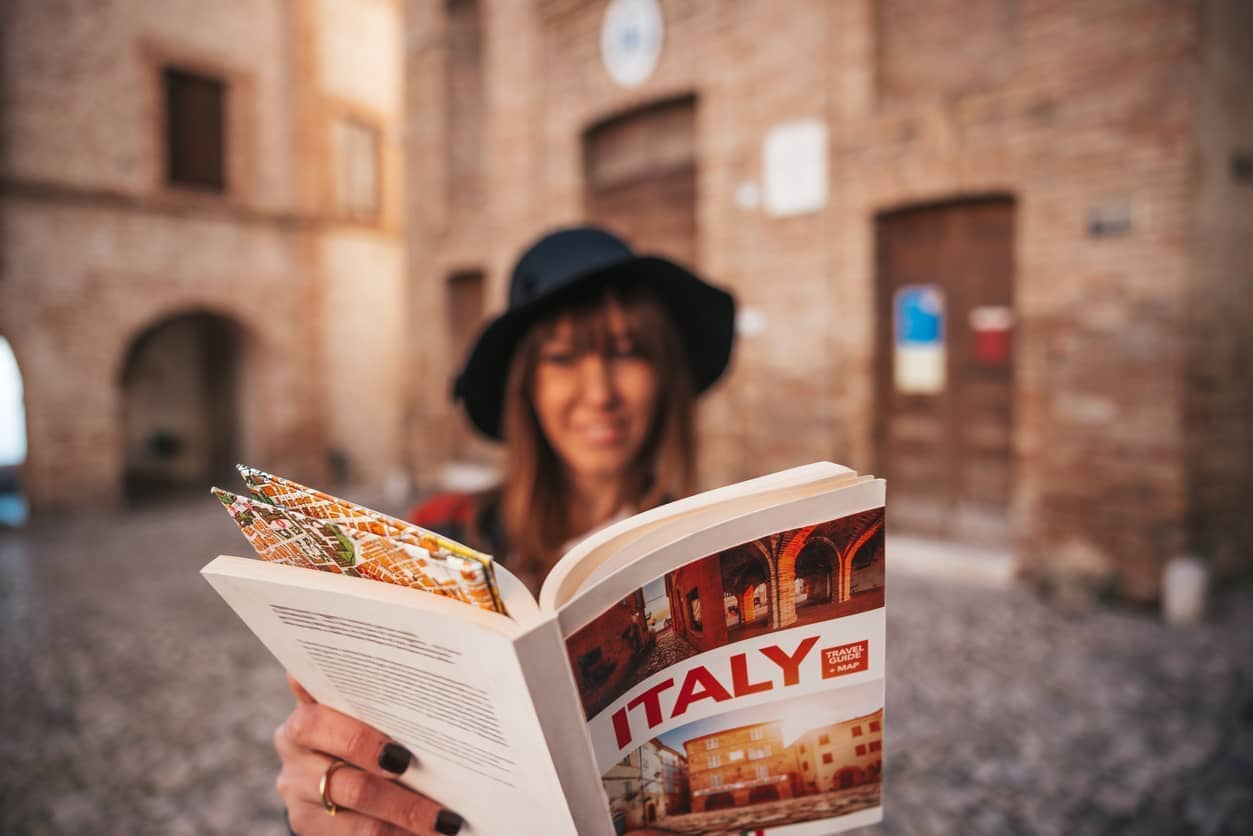Is it the end of the road for the guidebook? Since Mariana Starke wrote Information and Directions for Travellers on the Continent in 1820, with tips on the most ‘tolerable’ inns and how to hire a horse carriage, travellers have been packing a volume of advice alongside their identity documents before setting off for foreign terrain.
But last week, one of the world’s most widely read guidebook publishers, Lonely Planet, changed course. It released the first half-dozen of 35 ‘Anti-guidebooks’, declaring that the guidebook is dead. This new series – including Ireland, Portugal, Scotland and Japan – boast the familiar blue spine and two-tone globe logo that has accompanied my trips over decades. But any association with the On the Cheap titles – every 1980’s backpacker’s badge of belonging to a proud, penniless wandering tribe – advances no further. These are ‘Experience Guides’ without a timetable or ‘Top 10 Sights to Visit’. They don’t provide vital information to help plan your trip, such as the best pensione close to the railway station or the frequency of trains to Oporto. Instead, they’re packed with ‘curated interests’, whether that’s sea swimming or a taking nice glass of vino tinto. And crucially, they’re not written by ‘travel writers’ but ‘local experts’, as if the two couldn’t possibly share the same suitcase.
Whether intrepidly travelling to Brazil or sauntering off to southern Spain, I rarely venture out without one
What’s so wrong with travel writers leading us on our voyages through places we don’t know and where they don’t live? You don’t have to be Mauritian to write a guidebook to the Indian Ocean islands. In fact, it’s better if you’re not. A local expert is very handy, but they’re not me, so they’re unlikely to have an inkling of the sort of thing I might either enjoy or find utterly alarming. In Malta, I asked a local culinary expert (the sort of person Lonely Planet will undoubtedly employ for the Malta Experience Guide) to recommend the best restaurant in the area. They directed me to a fine-looking place, all crisp tablecloths and mirror-polished tile floors, and even helpfully ordered for me. A huge vat of garden snails arrived floating in dark brown liquor, accompanied by another vat of a similar colour, except this second one contained boiled chickens’ feet. The only thing I could stomach was the chips. I’d ordered them myself.
The guide had no idea I wouldn’t enjoy his favourite restaurant. Why would he? It would be the same if I were guiding him to London without any idea of his culinary and cultural tastes, or his tolerances. Giving any advice about your home place, which you know so very well, is always tricky. I’m flummoxed when asked to recommend the most charming and comfortable hotels in the capital, as the only mattress I test out each night is my own.
The Experience Guides are Lonely Planet’s attempt to try to fix a genre that’s been on a descending path. Between 2005 and 2012, worldwide sales plunged by 40 per cent as travellers turned to the internet to find out where to stay and what to see. In 2013, Lonely Planet itself was sold to BBC Worldwide for £130 million. Less than three years later, the BBC passed the flailing company on for just £50 million, a significant loss. In 2012 Frommer’s, the bestselling travel guide in the US, was sold to Google. Founder Arthur Frommer promptly bought it back when Google revealed they were taking the guides entirely online. Sales remained stable for a few years, before the pandemic hit. Now the future, like all things travel, is an expedition into the unknown.
Yet still there’s something satisfying about the collection of battered blue-spined books on my shelves. Part souvenir, part scrapbook, my old guides are stuffed with bus tickets and museum floor plans. Whether intrepidly travelling to Brazil or sauntering off to southern Spain, I rarely venture out without one. I can reconstruct my voyages from them.
I’m not ashamed to rely on their advice. If T.E. Lawrence consulted Baedeker’s guide to Palestine during his early 20th century archaeological excavations in the Middle East, then I can use the Pocket Rough Guide to Berlin when I’m on a trip to the new Humboldt Museum. We should celebrate the two-century long history of a knowledgeable travel writer gently leading us by the hand through landscapes new. Because if Lonely Planet are refusing to proudly stand up and produce guidebooks, we’re all lost.







Comments